In pictures: Redlight's London studio
We catch up with Bristol-born Hugh Pescod aka Redlight to talk blowing up cars, gear and his debut album
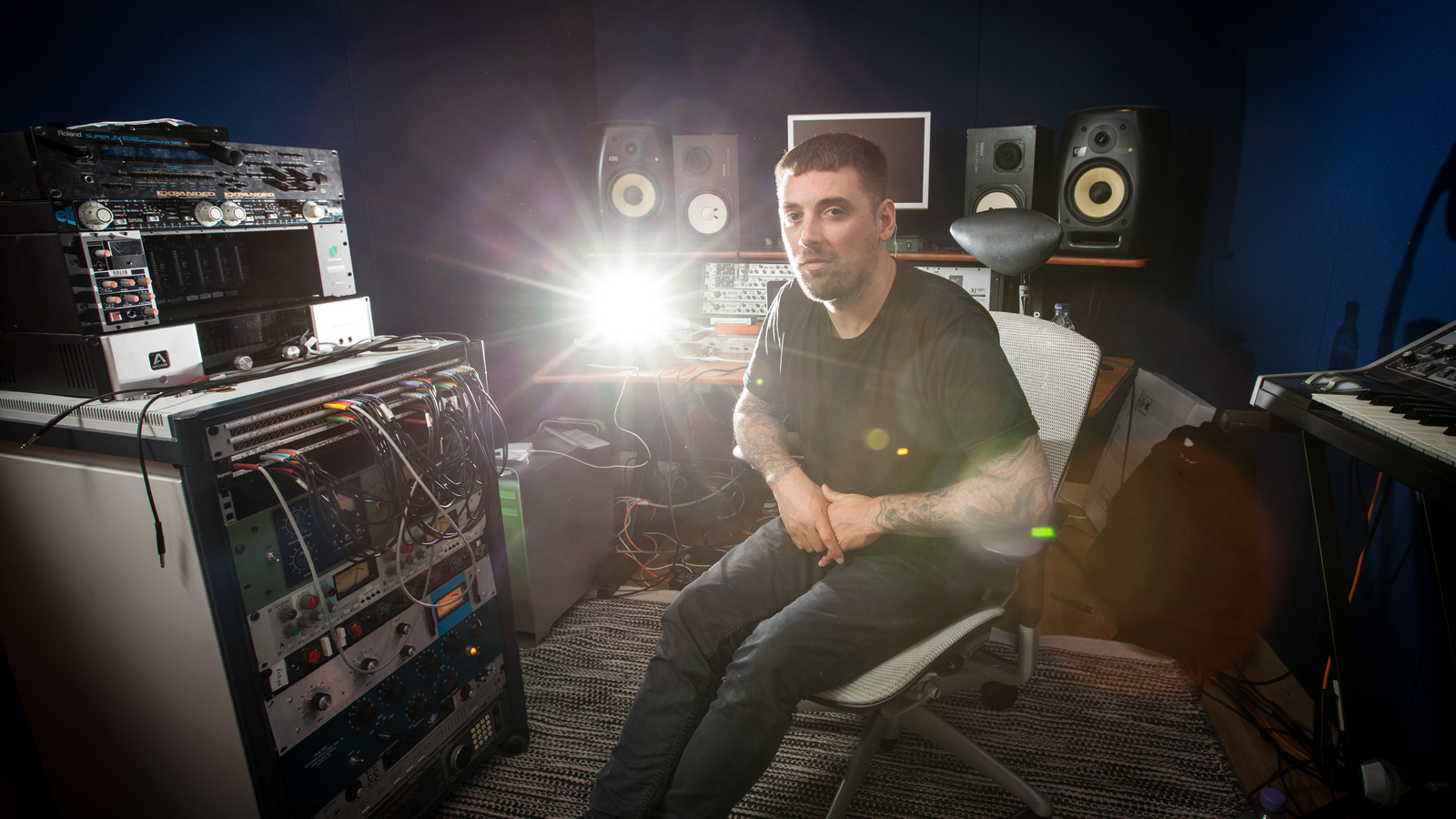
Intro
Having caught the tailwind of Bristol’s rave era, Hugh Pescod dived into music production under the moniker DJ Clipz with releases on a variety of established drum ‘n’ bass labels. With his edgy repute and ability to cross- pollinate styles, Pescod – rebranded as Redlight – was enlisted to remix everyone from Pendulum, Steve Aoki and Little Boots to Rihanna and Lily Allen.
When the major labels came calling, Pescod eased into the limelight with UK funky/house floorfillers Get Out of My Head and Lost In Your Love. However, uncomfortably bound by the rules of the corporate machine, he slid out of Polydor’s contract and created his own Lobster Boy label.
Having already stamped his identity as a producer, Pescod admits there’s less riding on his long-awaited debut album than there might be for others. And while, in his own words, he may be impossible to work with, his sense of humour’s never been in question.
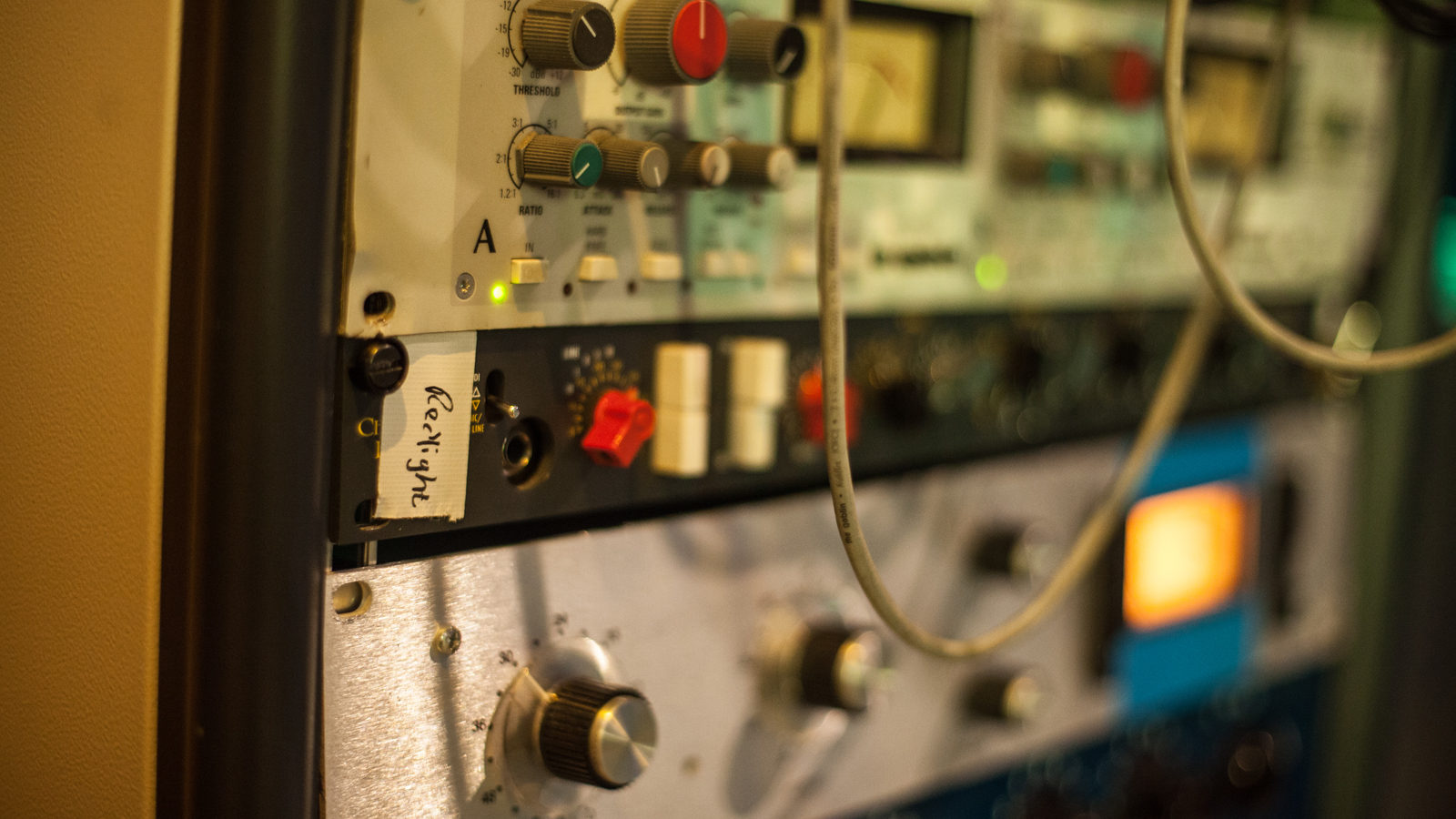
Galaxy FM
Can you tell us about your early days in Bristol, the music you grew up listening to and your involvement in the club scene?
“I grew up in the south west, seven miles out of Bristol. I was going raving from a young age – back in the ’90s no one cared, you could get into clubs and we were all heavily into jungle and hip-hop. Luckily, it was a good era for Bristol music; you had Full Cycle forming who had a radio show on a local station called Galaxy, and there used to be a night called Sky Juice where people like Goldie would be coming down.
“There was a big warehouse movement in Bristol; we used to go to illegal parties all the time. When you’re ten years old you don’t realise that it’s all seeping in – it’s only when that generation’s changed that you recognise you were part of something pretty special.”
Were you aware of what was going down in London?
“Now the internet connects everyone; you can know the latest fashion, street and trend in Azerbaijan. But in the ’90s you couldn’t could you? People had their own interpretation of what was going on in New York or London but you couldn’t go there; you’d just go to Replay Records at the bus station. I still go record shopping all the time.
“I was in LA yesterday and spent three hours in a record shop buying old house records. There’s sick tunes there, acapellas and samples, but you’ve got to go and search for it. Beatport’s amazing. Compared to seven years ago, you can get so much from it, and I probably buy every week, but I’ll still rip off YouTube if I have to.”
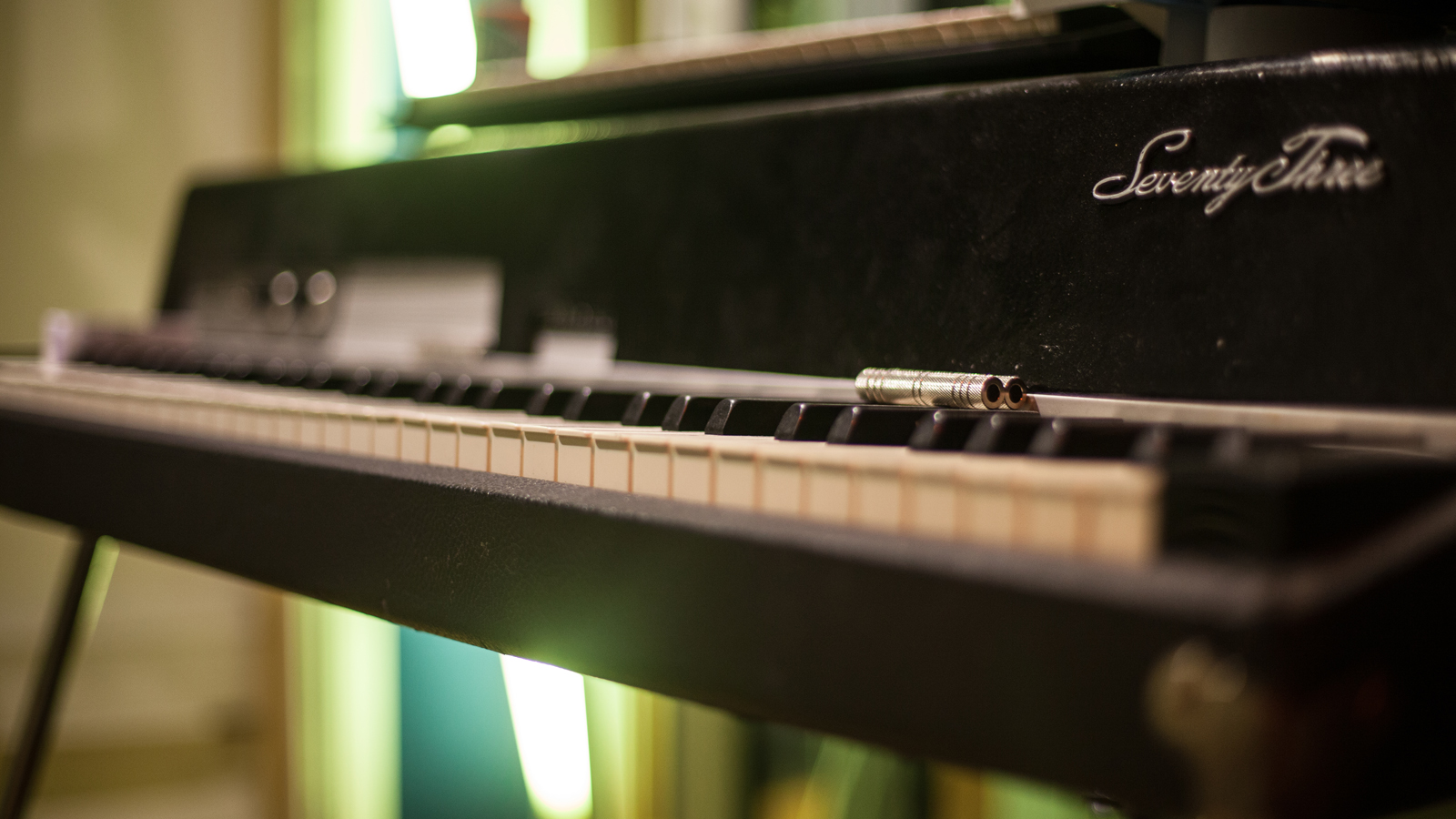
At the movies
I read that horror movies were an influence?
“It wasn’t horror films, just films. Everyone sampled VHS in the ’90s didn’t they? You’ve got that Scottie tune which was Evil Dead; then you got Marked for Death, the Ragga film with Steven Seagal about Jamaican crack dens, that got ripped to shreds. People were ripping videos, getting samples from vinyl and doing anything they could.
“No one paid for samples back then; Martin Scorsese wouldn’t have heard Shy FX Original Nuttah would he? And even if he did, it’s pennies not pounds. I won’t sample music, just bits of vocals and stuff. If we can’t find the person who owns the sample, we’ll leave 50% of whatever we think’s fair out of the PRS.”
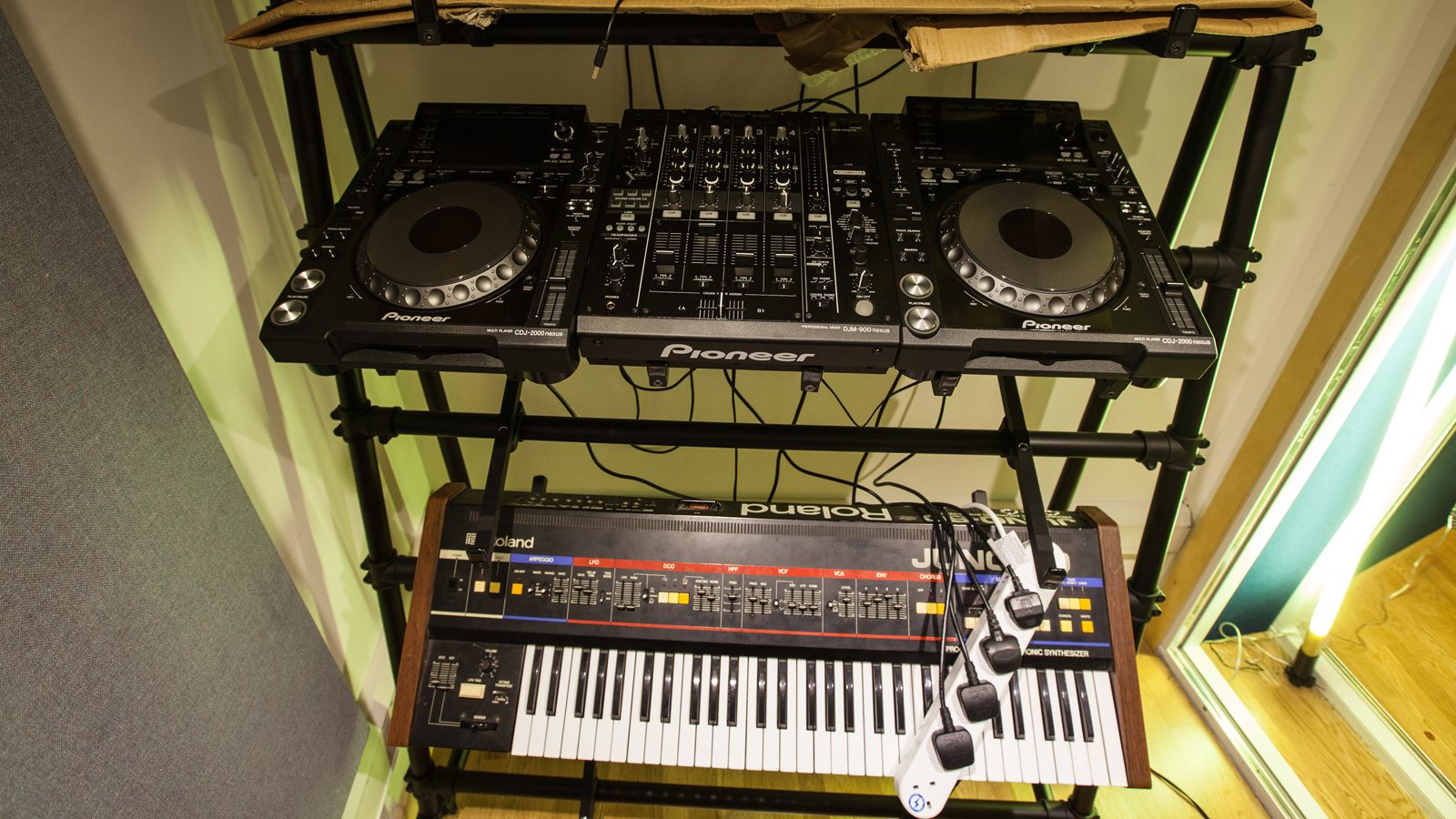
Metamorphosis
How did being a DJ mutate into becoming a producer?
“As soon as I saw how people made music I wanted to make it. I went round my friend’s house and he had an Akai sampler and I got the bug and went to music college; back then there was only one place in Weston-super-Mare. You couldn’t afford gear as it was all analogue, so I learned MIDI and used the first Power Macs, which could do ten seconds of audio.
“I bought an Atari for £50 off some kid at school because the gamers didn’t want that no more; it was old technology. It had a Cubase disk and I had a little E-mu ESI-32 sampler and learned from there. But I was only 16 when I went to college; my brain wasn’t developed or intelligent enough to take it all in. Everything in my life has been self-taught. You can probably hear mistakes in my productions, but that’s creative development you know?”
How did you get into the remix world so early – you’d not released anything as Redlight?
“I used to be a drum ‘n’ bass producer and did releases under an alias, then when I changed to Redlight I had a manager who was getting me remixes for £300. I didn’t have an established sound so I’d do anything, and they’d be like, ‘yeah, we’ll have that’. It was just another remix on the package. Major record labels don’t give a shit what your music’s like; all they want is the chorus and a tune. It’s cross-branding; they just want your name on their press release and their chorus on your beat.
“Looking into stems is like looking into someone’s brain isn’t it? If I hear something that I want, I’ll pick it out, delete the rest and just make a palette of my own sounds. Back then, I didn’t even know what key a tune was in – Mixed in Key wasn’t invented then.”
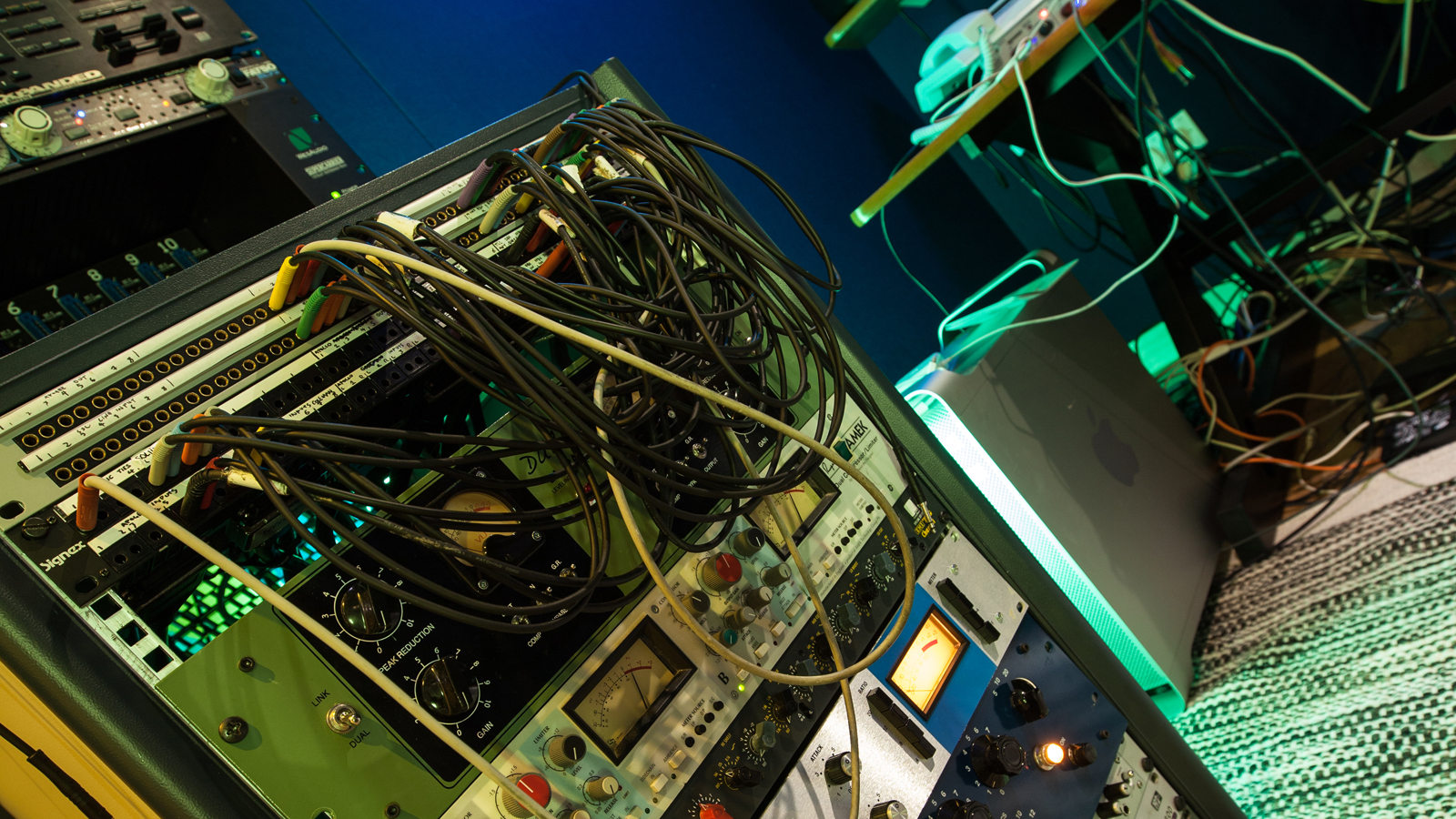
They don't make them like they used to
Why have we had to wait so long for you to release a debut album?
“I just think I didn’t know how to make an album. I started out doing underground tunes that blew up and the model at the time was to go to a major, because everyone wants to get paid don’t they? I’d never made any decent money, so I thought let’s give it a go, signed on the dotted line and all of a sudden everyone’s priorities had changed because when lots of money’s involved creativity suffers.
“I had a couple of hits and it was fun, but those tunes weren’t an album I wanted to make. When you’re in that whole major music thing, they just need top 20s, and ten top 20s isn’t an album I want to listen to. I don’t listen to chart music, apart from when someone like Drake crosses over by accident. I’m not listening to music that’s constructed to make money; I wanna listen to albums that have feeling and soul, like Portishead.
“I’m very rebellious and don’t like being told what to do; I don’t even like telling myself what to do because one month later I won’t agree with myself. Owning me as a label was a nightmare, so I decided to take myself out of that situation.”
It must be a nice position to be in to have made your name without releasing an album?
“I think that’s the positive side; there’s nothing riding on it but at the same time I want people to be interested. There’s so many ways to make records, but people’s memories are like ADHD x 100, so to get people to sit down and listen to an album is quite tough. But I still think there are music lovers out there who like that, so I wanted to make an album that’s 40 minutes long, not ten bangers.”
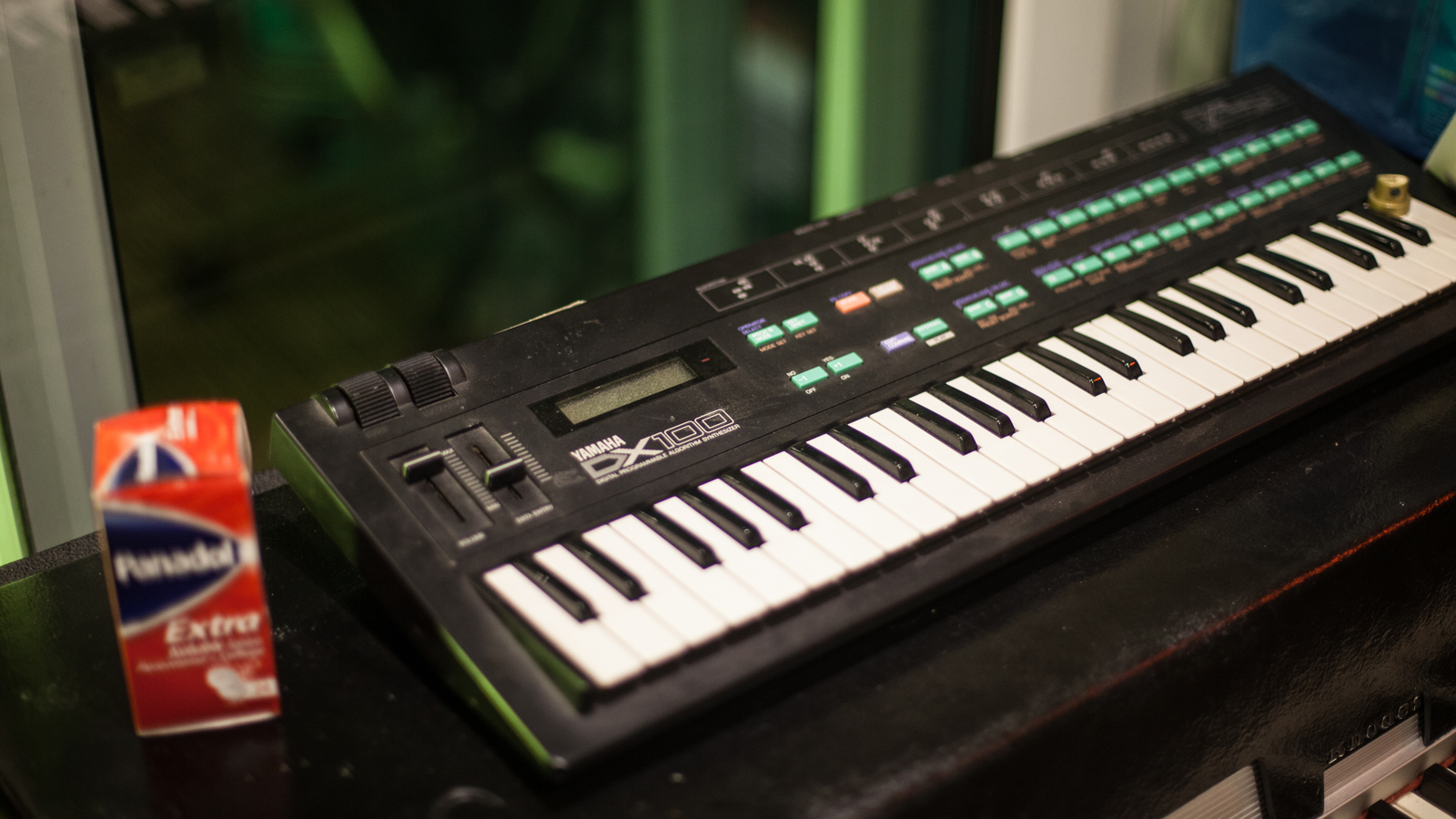
X Colour
The songs on X Colour sound quite spacious with strong, simple ideas and melodies – is that your trademark?
“Vocally, the people on that record were up for experimenting, and I liked soaking their vocal in reverb, making it spacious and giving it a certain vibe. I love vocal processing in hip-hop – how spacious and harrowing they can make it sound, but also really future. I just make music that I would want to hear myself, and obviously I’m a DJ and play in clubs and grew up in that sound system culture.
“When I used to make jungle, we spent all our money on cutting acetates. It was all about going to a rave and showing the next person and the crowd that you’ve got the latest dubs and you’re going to fuck the rave up. It wasn’t about getting paid, playlists or any of that, but showing people you had something to give and I still feel that about my music. I wanted to make an album I was proud of, where the styles in it were styles I wanted to hear.”
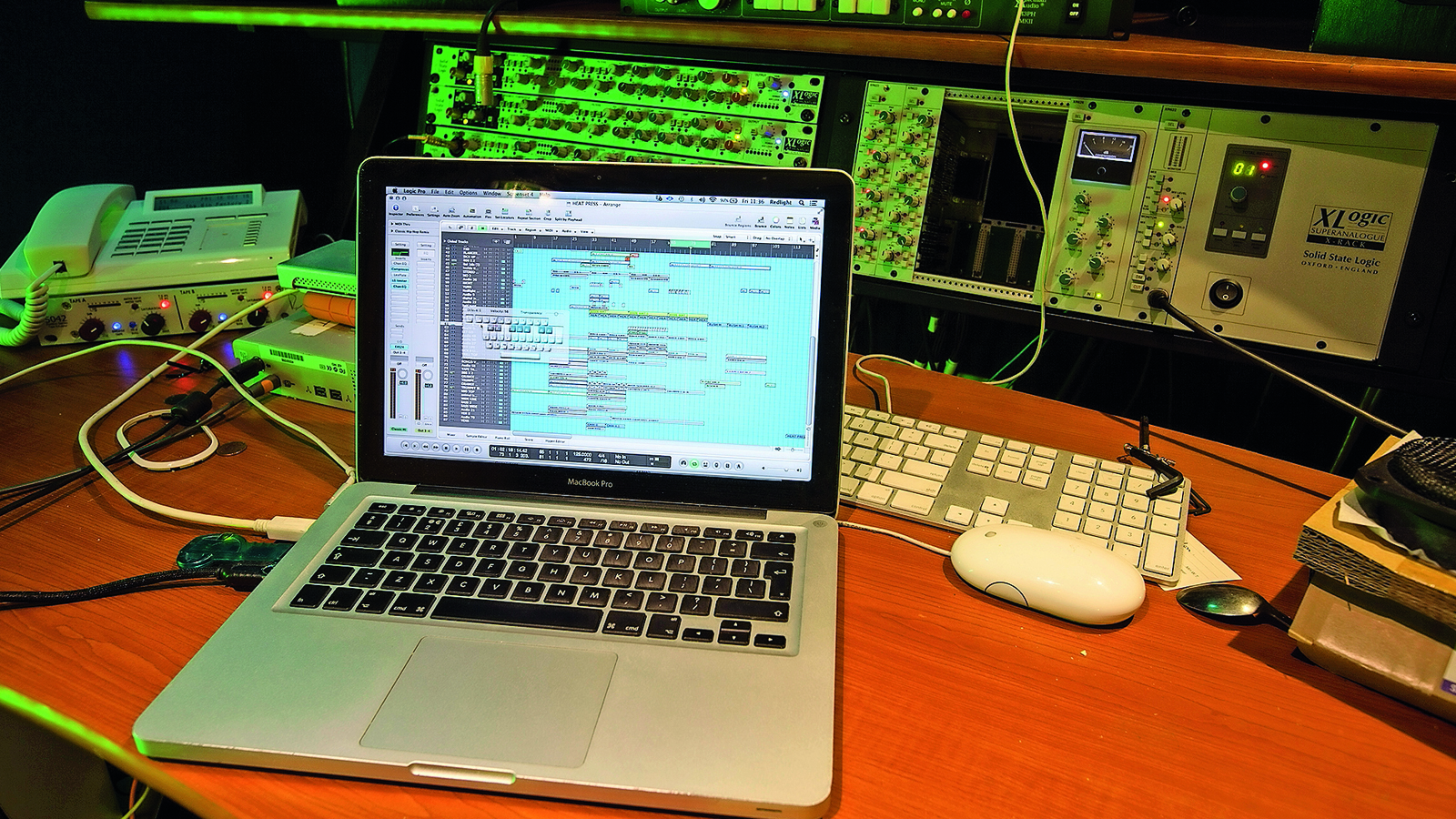
King of the jungle
Lion Jungle is a track that you could so easily have made a mess of, but you pulled it off...
“I was in a session a few weeks earlier with a friend of mine and she wasn’t really getting anywhere, and all of a sudden I came out with, ‘I’m alone in the jungle and wanna go to war!’. So I said, go in the hallway and record that for me, and she was like, ‘What you on about?’. So I had that sat around and also had some vocal stems from Prodigy of Mobb Deep sat there. He swore a lot on that tune and I was like, I don’t want this amount of swearing on my song, that’s his world.
“He grew up on the streets and I completely respect that, but it’s not really where I’m from, so I thought how can I make this sound really creative and fresh and make stuff pop out? So that’s what I tried to do; because he’s like the king of NY isn’t he? He is a lion in the jungle, so it was like, okay it makes sense now. I found that vocal sample from a few weeks before, got all the Serengeti noises and pieced it all together.”
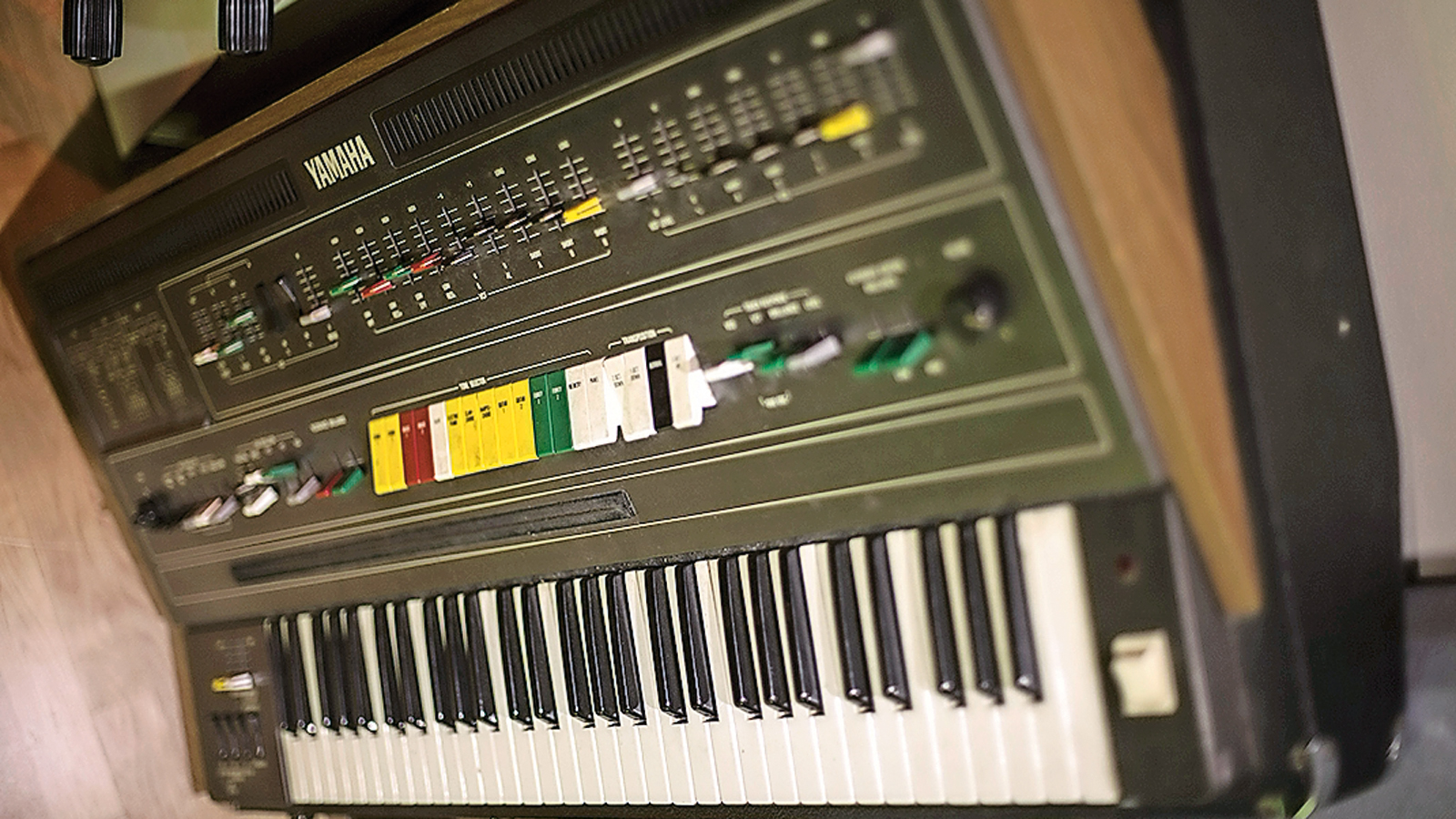
Guerrilla film-making
We understand you made the video to the track Threshold yourself; it looks rather dangerous...
“It’s been banned already [laughs]. I like film and had an opportunity to make this video, so I just took it to the limit in the budget we had and the next thing you know we’re buying gold cars and setting them on fire. The drug scenes are really good; I wrapped a tenner round my Dyson hoover and put baby powder on the floor, but they had to blur it out to get it on the telly.
“For the scene where he’s climbing the tower, I met the guy at Heathrow, gave him the memory stick for the camera, paid for his ticket and he fucked off to Dubai. You couldn’t make a video like that at a major; it would cost you £100k in liability insurance. We completely blagged that; no one had insurance – I could have killed myself blowing the car up, he could have fallen off the building in Dubai.
“Sometimes you’ve just got to push yourself; that’s what creativity’s all about, trying to find new ways of doing the same thing.”
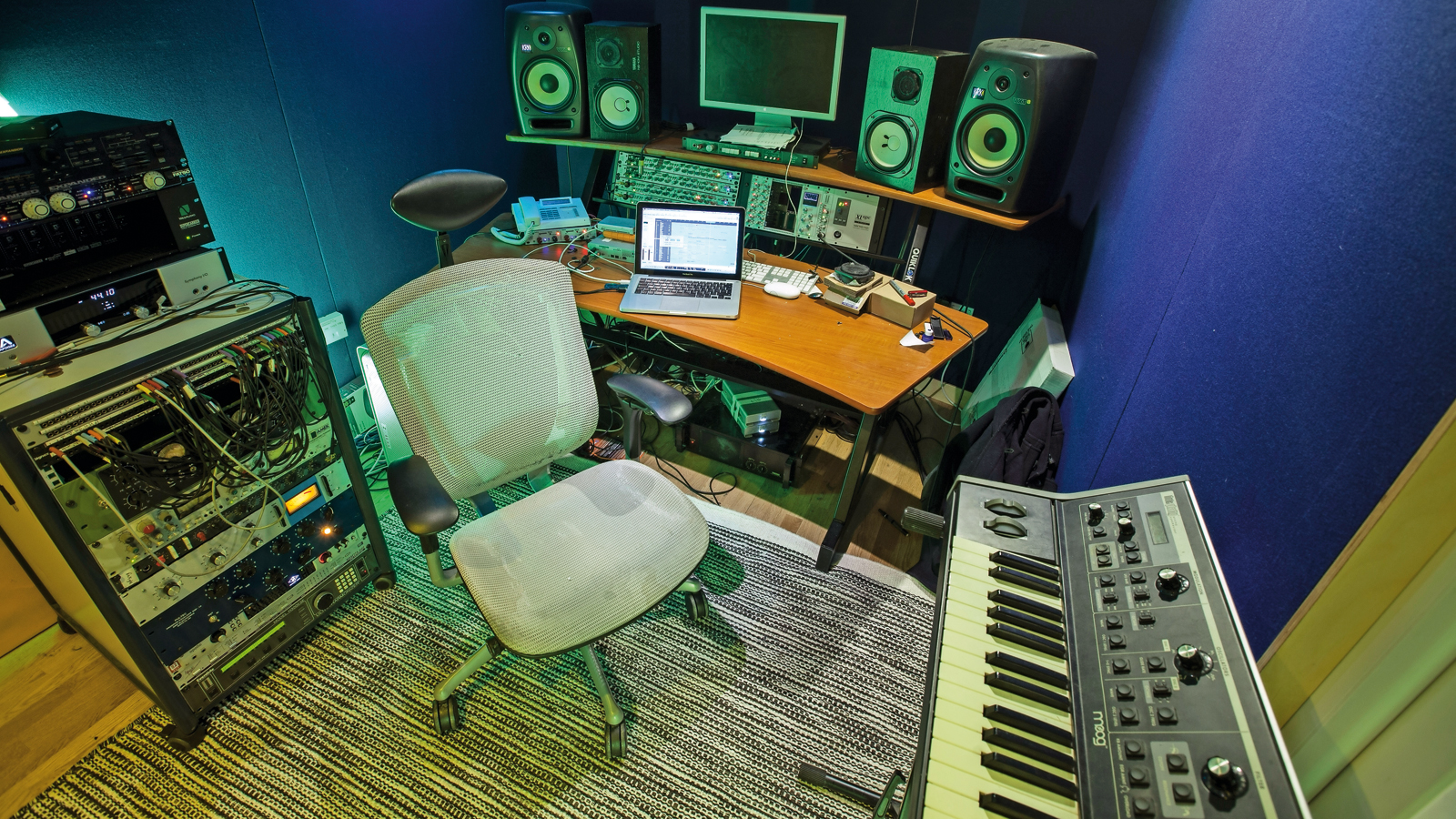
Outboard
So what’s your studio set-up based around?
“My laptop, with everything running through an Apogee Symphony audio interface. I use SSL channel strips for summing with eight outputs and there’s outboard on every output. I use a lot of outboard; I think it’s an important instrument in electronic music and fun to mess with. Because of how I’ve been brought up, when I got into music it was all outboard anyway, so I’ve just always carried on with that. Most of this stuff has been built up over years.”
Do you prefer running through tape rather than digital?
“I like tape saturation, it just glues everything together and gives it something that’s hard to get anywhere else. I like distorting stuff through it and EQing it – I just process and bounce; if you look at my screen it’s all bounced down.
“I don’t have plug-ins or anything because it’s bounced again and again and again. That’s how I worked when I used to have samplers. I’d make a beat with all the different drums, squash the shit out of it through the compressor and sample it back in as a loop. That way you’d hardly be using any memory.”
And this is running through Logic?
“I’m still using Logic 9; I’ve got 10 but don’t use it. I like colours – that’s why my album’s called X Colour. I’m working on it all day, I like pastels and there’s no pastels in Logic 10; it’s all miserable, dark and EDM.”
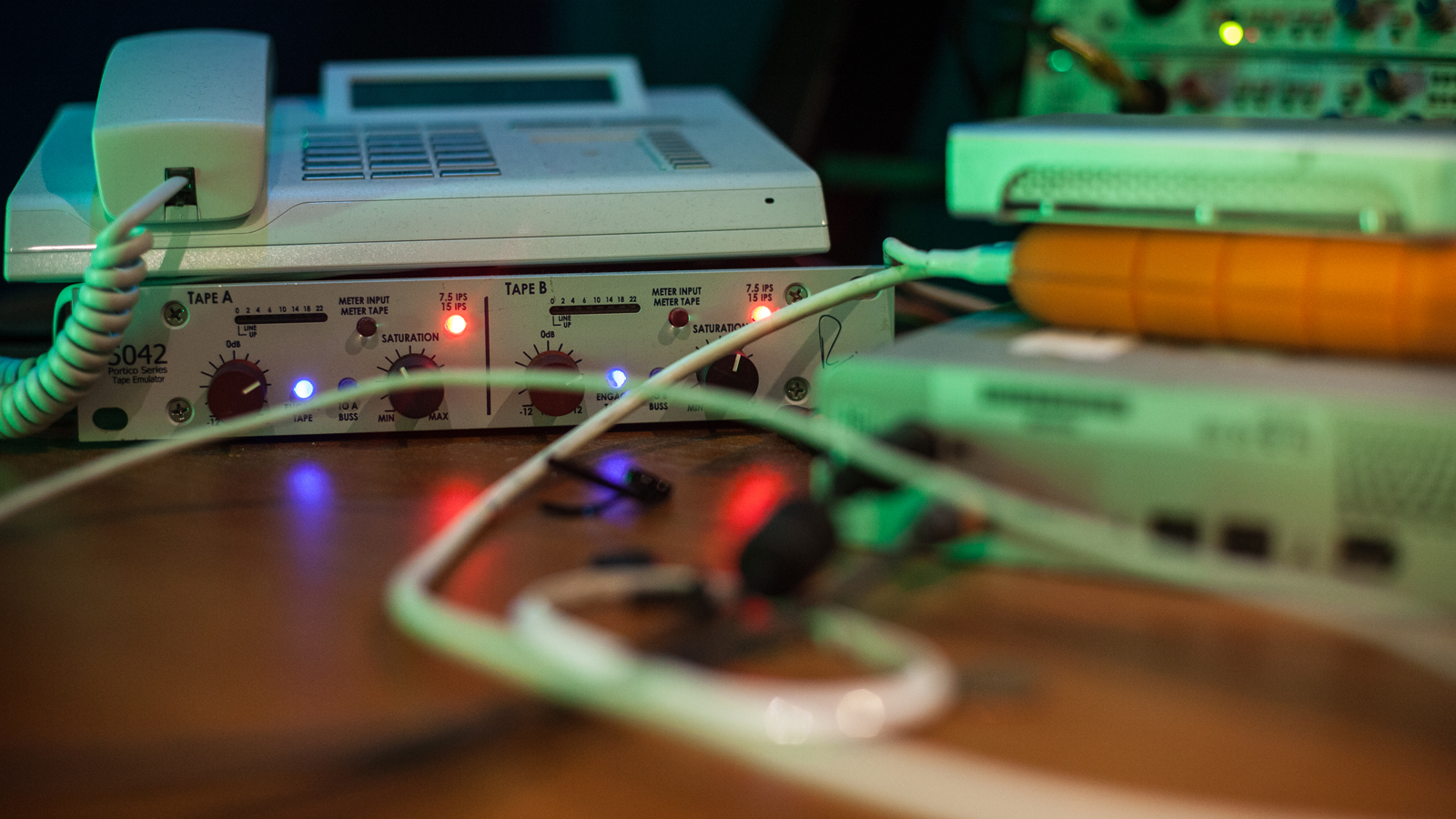
Do it yourself
What are you usually looking for in a DAW upgrade?
“Decent colours [laughs]. If it had these colours I’d probably be using it. To be serious, I can’t comment on it because I haven’t used it enough, but it looks disgusting. I like Ableton too; it makes you make music in a different way, but I’m not very good at learning. Because of the amount of time it will take me to learn something new, it had better be better than what I’m already using.
“At the moment, I’d say Ableton’s a sidestep; it’s good if you’re lazy and just wanna throw loops in and stuff from sample CDs, but I don’t sample like that. It’s horses for courses; I like Fruity Loops to be honest, but they don’t make it for Macs yet.”
So you don’t use any plug-ins at all?
“Less and less the older I get. I use Waves plug-ins but don’t use any of the UAD stuff or virtual synths. I don’t really even use the sound library. I just make my own drums by cutting stuff up and recording my own shakers and tambourines, then processing the sounds. You get a better sound when you do it yourself. It’s about your ideas at the end of the day – if you’ve got a great idea, you can sample a dead cat and make it sound good.”
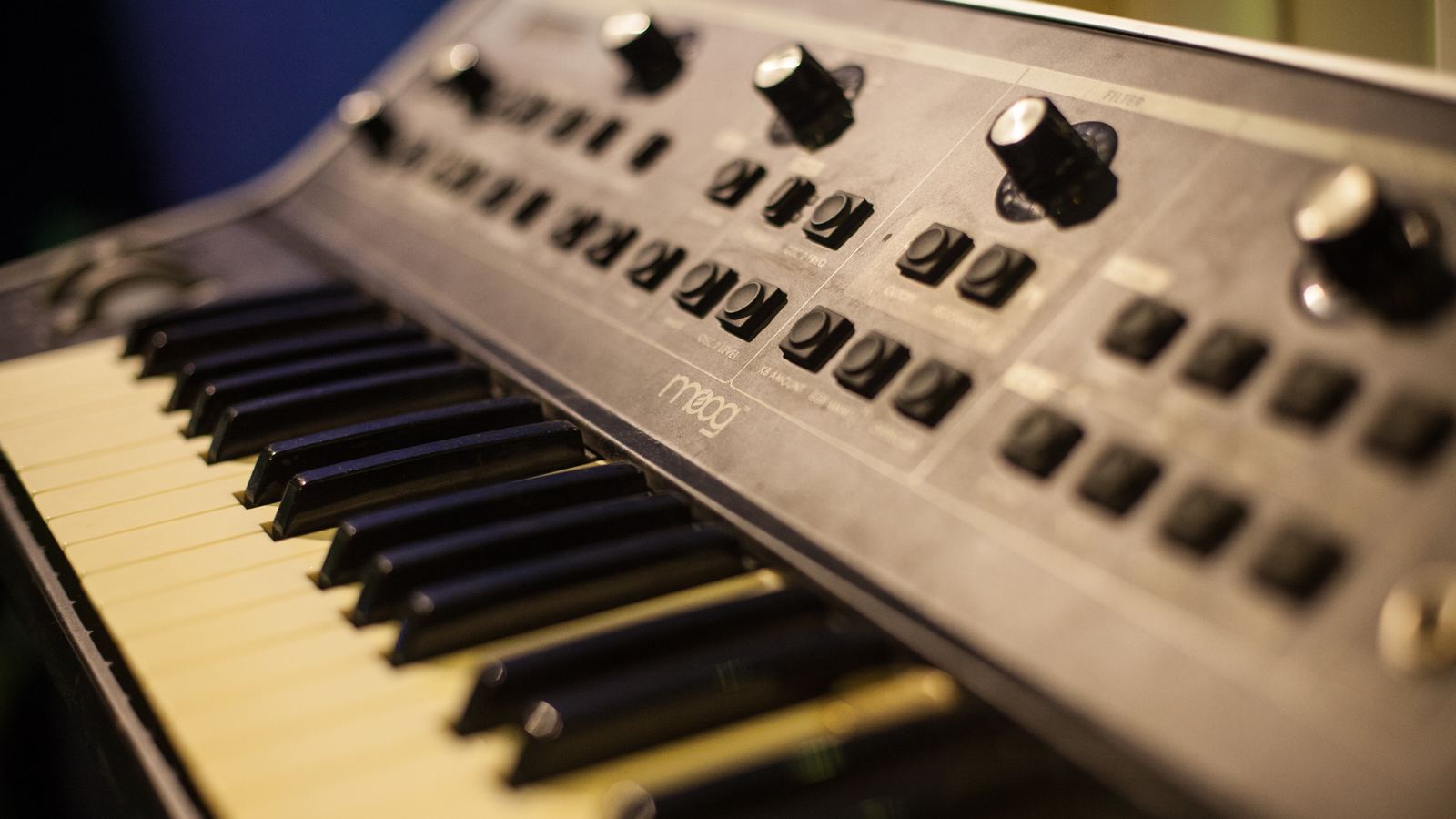
Hardware
You have more than a few hardware synths lying around. Do you use them frequently?
“I’ve used my Roland Super JV-1080 for over ten years and have all the cards for it. I just like the sound of it and I know how to take those tones apart and use them for bass parts and stuff. I sometimes use my Roland Juno-60, but to be honest I haven’t actually used any hardware for six months because I’ve got all the tones from my synths added to a sample library. When I make club music, I don’t really need anything apart from beats, a sine wave or an 808 kick; I prefer to keep things really minimal.”
What about the Moog in the corner?
“I’ve had the Moog Little Phatty for ten years. It’s good for effects noises, but I’ve had it repaired and it keeps breaking. It’s just a bit old. It’s definitely wonky; everything in here’s wonky, including me. I just spend all my money on compressors rather than synths. It depends what type of music you’re making.
“I don’t like music with loads of sounds in – I don’t like musicality [laughs]. I’m not a good player, so I’ll get people in to help me if I want something musical. I can make beats all day long and produce, but if you’ve got a player who knows how to deconstruct a classical composition they can make LA Strings sound incredible, especially when it’s layered up with a live orchestra.”
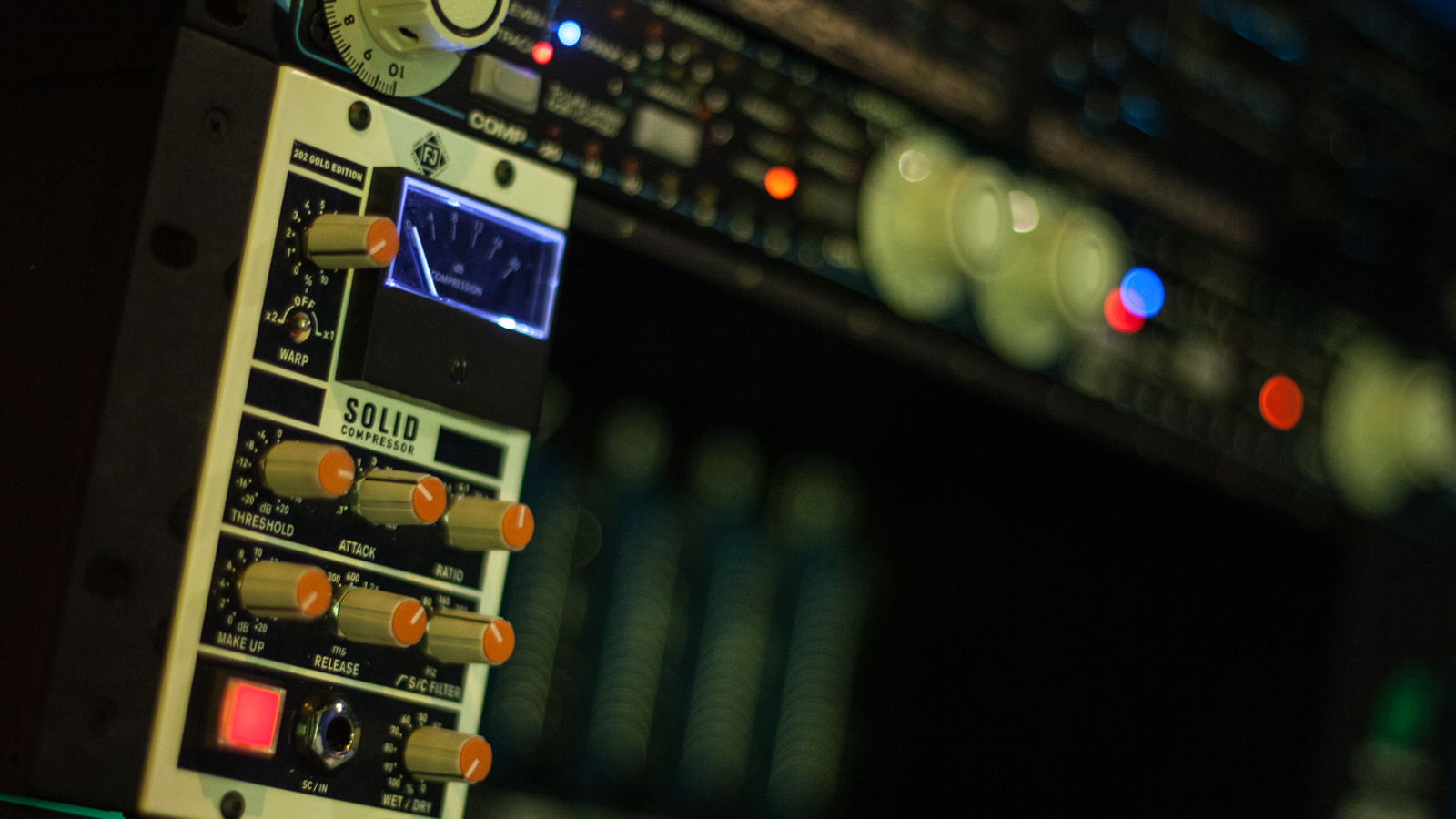
Mastering
You mixed the new album but didn’t master it?
“I don’t master myself. I’ll either use Metropolis Mastering or Beau Thomas at Ten Eight Seven Mastering. I’ve used those guys for most of my career. I could do it myself if I had the right bits of gear, but I prefer to have someone else squashing it up at the end. They can go a bit far sometimes and you just have to tell them to tone it down a bit, but it’s fun when it all comes back to you.”
Is it important to get a separate pair of ears to listen to the final mix?
“Sometimes I’ll mix stuff to the point where I can’t mix it any more. If you want something for radio, you’re not going to push it to the point of distortion, but a mix engineer will push it to the point where you’d think it’s too much but isn’t. There’s some amazing engineers out there who will put transience on everything and make it pop out, so there’s definitely an art to doing a radio mix.
“I’m more of a club mix guy; for me it’s more about the bottom – the tits and arse – but they’re all about the mid and popping stuff out on little speakers or a phone. The way they prepare it for mastering engineers is definitely different to how normal people prepare their mixdowns.”
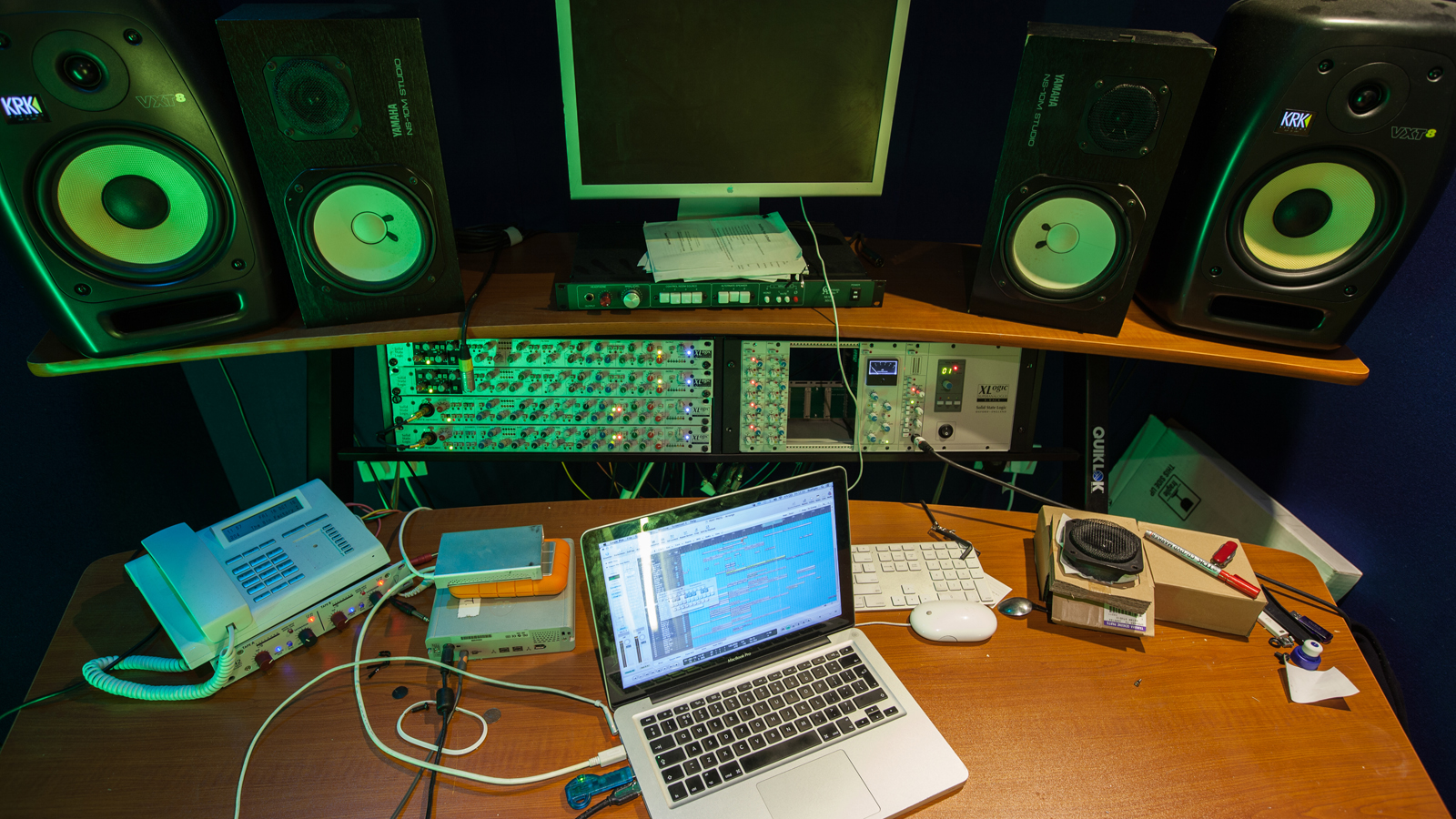
All about the bass
The bass frequencies on the track Repetition are sumptuous. Do you have any tips for someone wanting to get that deep bass sound?
“It’s just trial and error, and it was made over a long period of time so there was no rush. It’s like a hip-hop/RnB track, so you want the kick drums to have sub in as well; you just need to saturate it a bit to get the subs sitting in the pocket. When you’re dealing with bass you want to make it the biggest thing in the room and turn everything else down a bit. But that track wasn’t made here; we had a big studio at the time in Kentish Town with a 72-channel Neve VR desk that no one really used. It had two huge ATC 150 speakers in the wall, so I made that record very loud so I could hear the bass.”
When mixing, will you test your tracks on a variety of speakers?
“I’ve usually got three speakers set up. I’ve got these KRK VXT8s – they’re shit speakers. It’s like anything; you’ve got to work hard with them. NS10s are shit as well. That’s why I like them – if you can make your music sound good on crap gear you know it’ll sound good on everything else. With the NS10s, it’s all about the mids, so if you can hear your sub on an NS10 it means there’s a lot of sub in your tune. But nobody will tell you to buy a pair of KRKs.”
People often say that about Genelec – some swear by them, others think they’re awful...
“I just think it’s what you know. If you had a pair of Genelecs before you were a producer right up to when you became a good one, those speakers will have been part of your journey. I had a pair of ATC 25s that cost me five or six grand and they were fucking pony – and you can put that down. But, the ATC 300s are sick, because they’ve got bass.”
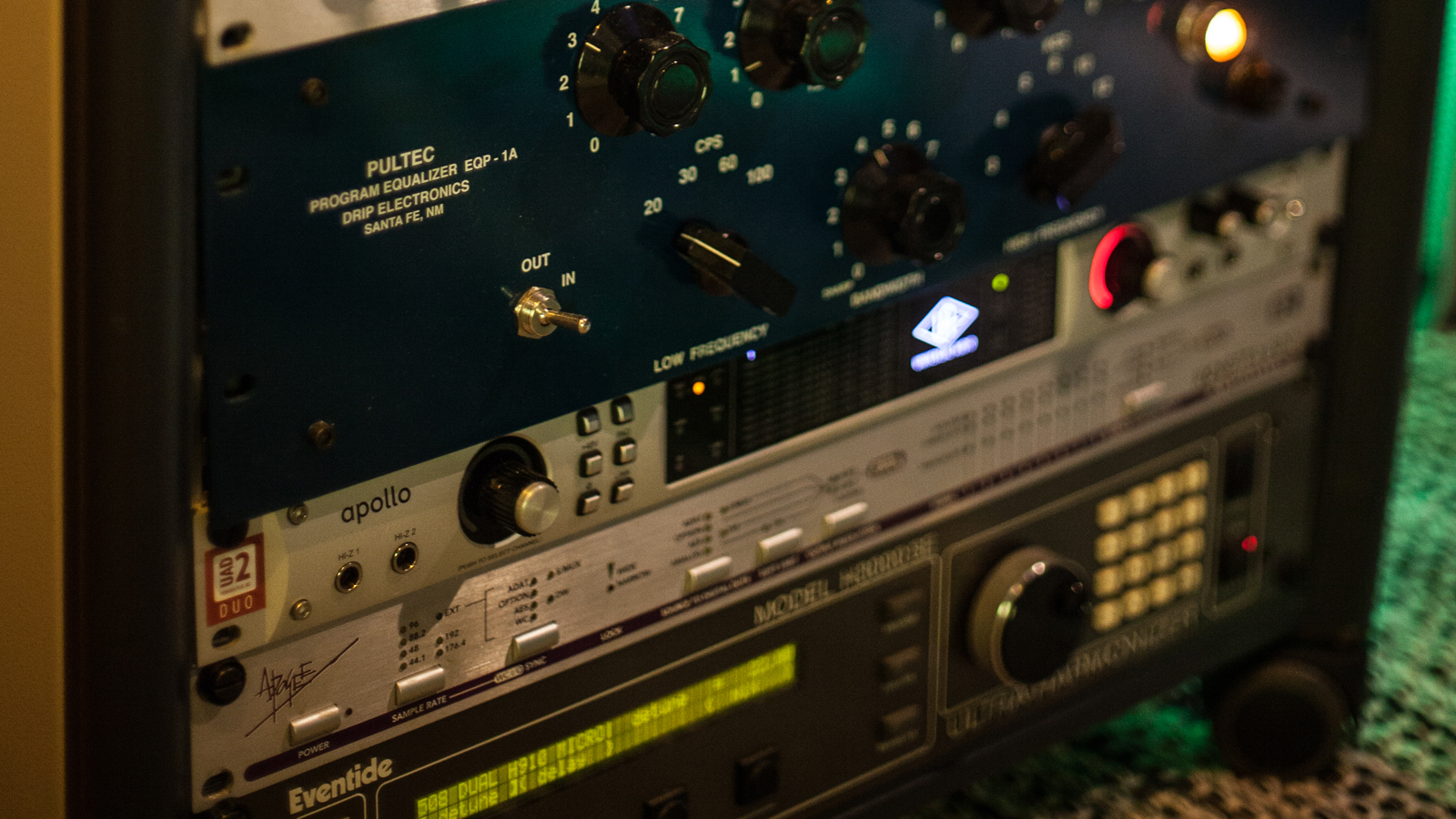
Instagram, Twitter and the Kardashians
Do you listen on laptop speakers or a phone?
“I don’t know how everyone is consuming their music, but I don’t mind listening to it on my phone. I don’t have a Hitachi stereo in my pocket, I’ve got an iPhone – it’s all down to headphones I suppose. Problem is I’ve only got 16GB on my mobile so I have to delete an app if I want to take another photo – even my Google Maps has gone now.
“You’re right, we are going backwards, but it won’t be long before it all becomes defunct anyway. Music’s not important is it? Instagram’s more important to kids than music. In the ’80s there was film and music, and a bit of drugs and football violence – now we’ve got Instagram, Twitter and the Kardashians, and everyone’s takes selfies. People are more into themselves than music.”
New LP X Colour is out now. For the latest news, release info and DJ dates head to Redlight’s website.
Future Music is the number one magazine for today's producers. Packed with technique and technology we'll help you make great new music. All-access artist interviews, in-depth gear reviews, essential production tutorials and much more. Every marvellous monthly edition features reliable reviews of the latest and greatest hardware and software technology and techniques, unparalleled advice, in-depth interviews, sensational free samples and so much more to improve the experience and outcome of your music-making.


